Our TTGM Community Resilience Working Group regularly explores future scenarios that are likely to follow from an impending energy collapse.
In a recent email thread within our group, our resident futurist, Robin Schauffler, was commenting on the upcoming comprehensive planning initiatives taking place in Swarthmore and Media Boroughs.
Among other things, these initiatives are considering how best to handle future housing needs in our communities.
The idea of building tall residential units as an efficient way to increase density was raised. Robin voiced her opposition to this idea.
This blog post is an explanation of her reasoning.
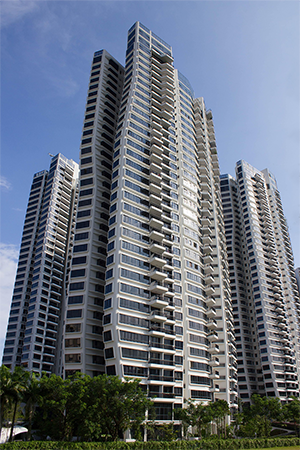
On Housing Density
I’m in favor of increasing density within existing building envelopes:
- Turning large houses into duplexes, co-housing, or renting out rooms
- Turning an existing outbuilding or freestanding garage into housing
- Allowing unrelated co-ownership of a house and property
- Turning the property into a micro-commons
I’m against:
- building more structures
- occupying a greater land footprint
- building higher than three stories
Here is my reasoning…
Energy descent is only possible via localization of food and other basics, the more localized, the better.
Before industrialization and still in un-industrialized parts of the world, the ideal arrangement is a village of tightly clustered tiny homes or group homes (think of Mohawk longhouses) within a short, easy walk of the fields, orchards, gardens, food forest, rice paddies, whatever they cultivate. That’s probably not going to happen in Delco this century.
I’d like to see as much localized food (ie. walking-distance, not 100-mile radius) as possible, even if that only amounts to kitchen gardens with hopefully a few potatoes. I’d also like to—ahem—”pave” the way for each successive generation to both grow more food and naturalize more land in some sort of ecologically holistic way. I won’t live to see it, but that is our best chance for survival as a species.
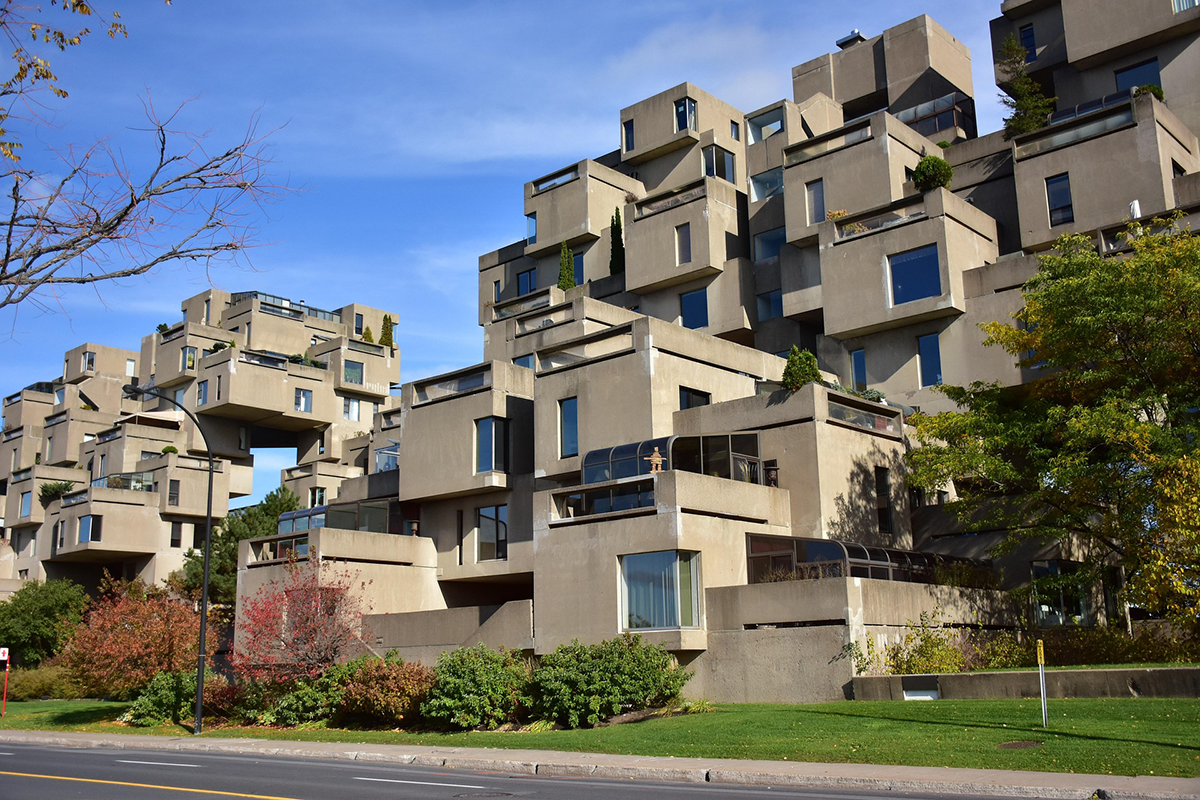
Eco-footprints and sustainability
The higher the density of residence, the greater the land area needed to service those inhabitants. That extends our eco-footprint, a la Bill Rees and Matthew Wackernagel.
Inhabitants of the Oil Decline era will have to find ways to live and thrive in the ruins. In past collapses, the survivors would mine decaying structures for materials for new structures. Thus, ancient fortresses would become pasture walls, or wine cellars, or troglodyte dwellings.
To create, say, a new village cluster, surrounded by a larger plot of arable land, they will have to disassemble ruined buildings and remove parking lot and street paving to rebuild in a more suitable fashion and expand food gardens.
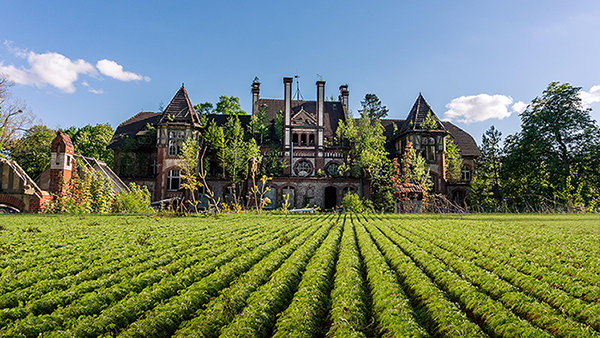
During Oil Decline, taller buildings will be harder and harder to sustain. Either price spikes, shortages, or outages will plague them. During outages, elevators won’t run. Neither will electric HVAC, even if it’s a geothermal heat pump. When the HVAC on the roof needs replacement, there might be no replacement to be had, and even if there is, where will they get the diesel to hoist the old one down and the new one up? Their eco-footprint will be large, requiring shipment from many miles away of the most basic necessities. During decline, the trucks might not all suddenly stop running, but there will be disruptions in service. What was once a high-end condo complex will fall into decline and could become a den for thieves and ne’er do wells. Structures will crumble and be unrepairable without diesel.
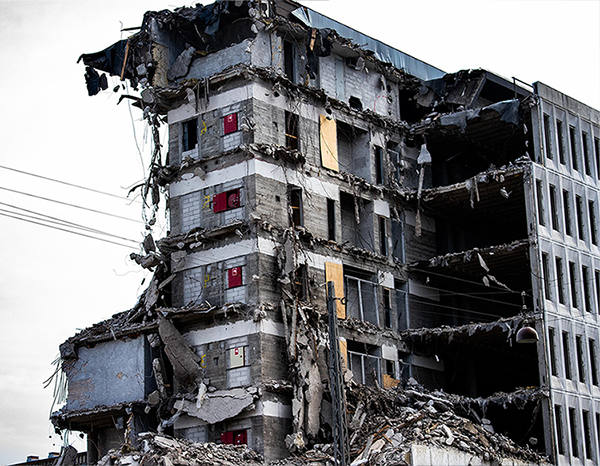
It will reach a point where the locals want the tall building removed, but it will be unsafe to dismantle it without either diesel for a wrecking ball or explosives. Have you ever traveled around Ireland and seen remains of fortresses in the middle of pastures or crop fields? Well, that’s what happens when a structure is too big to dismantle.
Population considerations
So, in kindness to the generations who must endure Oil Decline, let’s not overbuild. Let’s prepare the way for them to decrease density.
Meanwhile, consider that the US birth rate is only about 3/4 replacement rate. If the US were to dramatically reduce immigration—even without deportations of those already here—our population would decline precipitously. In fact, it would decline too rapidly to sustain capitalism. Then consider what happened in the recent decade in China, where they built for a huge population increase only to be faced with so much vacancy that they have been demolishing brand new and nearly-finished buildings!
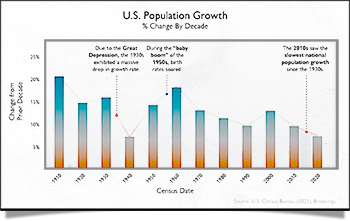
The US housing crisis is not even due to immigrants, who are responsible for keeping the US population steady. It is due to the ongoing migration to the largest cities in search of work. That migration is due to the loss of local economic prosperity in small cities and large towns across the Rust Belt, Midwest, Great Plains, NorthWest, etc. and due to the giant agribusiness buyout of small family farms as the farming families succumb to debt.
Neither Swarthmore nor Media nor Delco needs to be in the business of fixing the housing crisis, any more than they need to be in the business of stopping climate change, fixing the US debt-to-GDP ratio, or solving the crisis in the Middle East.
You want to fix the housing crisis?
There are actions big and small that can contribute to solving this problem.
Consider co-housing in your own home. Is there someone you might help out by sharing your roof for a few days? or a few months? By practicing this simple gesture you build your skill for house sharing, raise the idea up for others to consider, and help reduce the overall demand for housing—even temporarily. A return to the practice of multi-generational families living in the family home will be a helpful trend to develop.

Other actions might include turning large houses into duplexes, or renting out rooms, turning an existing outbuilding or freestanding garage into housing, allowing unrelated co-ownership of a house and property, turning the property into a micro-commons.
Figure out how to create a sustainable local economy, then find a sister city in the Rust Belt or other depopulated region to nurture into building their own local economy, and attracting the workforce to do so. I recommend joining or starting something in the spirit of the Transition Town movement.
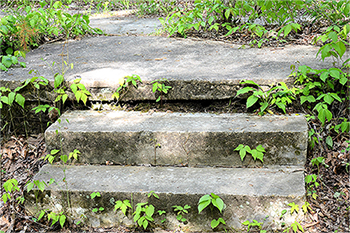
Really big thinker-doers might create a financial co-op to buy out giant agrobusiness landholdings and subdivide the land among homesteader eco-villages.
Or—just start a conversation with someone who also might care about affordable housing.
Every step helps.

Leave a Reply